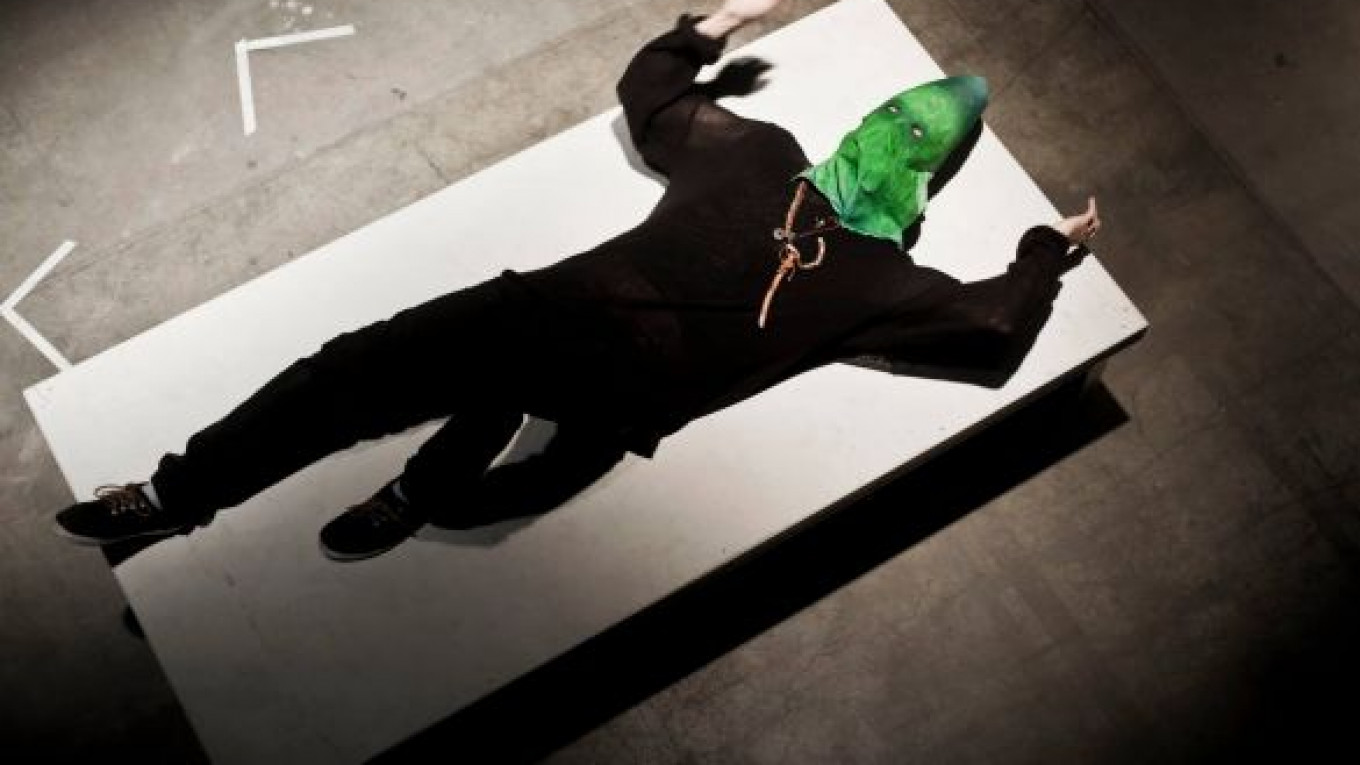Russian artists have long held a reputation for innovative and bizarre performance art. However, though the many conceptual schools that sprang up in Moscow in the early '90s competed for attention by staging shocking group performances, over the last decade the Moscow art scene has grown less wild and more institutionalized.
Last weekend, spectators caught a glimpse of Moscow's crazier past at a three-hour art session called "Night of the Unexpected," which was held at the Platforma performance space in the Winzavod contemporary art center Friday and Saturday night, as part of the ongoing Russia-Netherlands year of cultural exchange.
Artists and musicians from the Netherlands came to Russia to represent some of the ideas of modern Dutch art. "Night of the Unexpected'' provided several common forms of art, like music and dance, presented in a new, experimental way. People of different ages and nationalities were attracted to the event, whose unusual title seemed to suggest numerous surprises.
Everything about the night was truly out of the ordinary, beginning with the arrangement of the spectators, stages and organizers in a way that made the audience interact with the performance. During the event, visitors had to follow the constantly moving performers, relocating from one stage to another. This movement turned the show into a spellbinding musical journey.
The session opened with a quiet musical introduction played by the Dutch Amstel Quartet. The four saxophonists in the quartet artistically arrange classics from Bach right up to contemporary composers, giving a fresh take on the canonical sound. The next set was a piece of new Russian music, "The Touch" by Vladimir Rannev. Using inappropriate items, the musicians interacted with a double bass that was placed on the ground, uttering abrupt noises that created an atmosphere of surgery. This was followed by an interactive video with an elderly woman moving synchronously with the sound.
The third act was the "Sybille" dance, directed by Andrea Leine and Harijono Roebana, a pair of Dutch choreographers who have worked together since 1989. Dancers in the neutral white clothing paired an ambiguous modern act without any decorations with the conglomeration of fluorescent lamps. "Our dance is an art without a story," dancer Shane Wezenberg said. "It is up to everyone to invent his own story to describe what is happening."
Beyond the experiments with classical musical instruments, the show included a performance by the band Knalpot, which broadens the horizons of rock music by putting together hard guitar riffs, broken rhythms, electronic effects and minimalism. The most unusual item used to make sound was a megaphone — it was used in Alexander Manotskov's "Der Progress N1" piece by two performers who wandered amongst the visitors, making a wide range of different earsplitting sounds.
"Night of Unexpected" ended with a laser show that took the audience into another reality, forming images of multicolored clouds on the ceiling and rapidly streaking waves and tunnels passing through people's bodies.
Contact the authors at artsreporter@imedia.ru
A Message from The Moscow Times:
Dear readers,
We are facing unprecedented challenges. Russia's Prosecutor General's Office has designated The Moscow Times as an "undesirable" organization, criminalizing our work and putting our staff at risk of prosecution. This follows our earlier unjust labeling as a "foreign agent."
These actions are direct attempts to silence independent journalism in Russia. The authorities claim our work "discredits the decisions of the Russian leadership." We see things differently: we strive to provide accurate, unbiased reporting on Russia.
We, the journalists of The Moscow Times, refuse to be silenced. But to continue our work, we need your help.
Your support, no matter how small, makes a world of difference. If you can, please support us monthly starting from just $2. It's quick to set up, and every contribution makes a significant impact.
By supporting The Moscow Times, you're defending open, independent journalism in the face of repression. Thank you for standing with us.
Remind me later.






